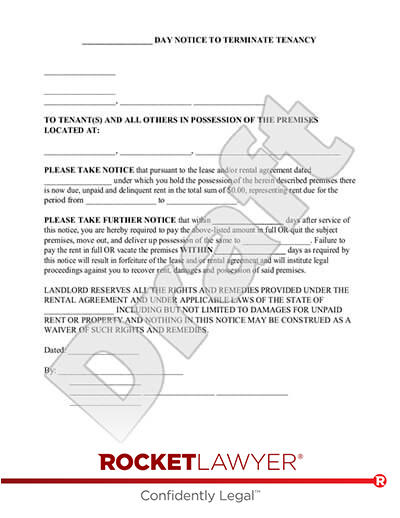What is an unlawful detainer or eviction lawsuit?
An unlawful detainer lawsuit is more generally called an eviction lawsuit. Different states, however, have different names for this type of lawsuit. For example, in Alaska, it is called a Forcible Entry and Detainer lawsuit. Most landlords know the meaning of eviction and understand that it is a process that landlords can use to legally remove tenants or other inhabitants from the landlord's property. These include:
- Tenants remaining in an apartment after their lease expired and was not renewed (called "holdover" tenants).
- Renters who refuse to leave the property after being served with a notice to vacate the premises for violating the lease or not paying rent.
- Squatters (people living on property without permission from the property owner, and often without the owner's knowledge).
- Others, such as subletters that were unknown to the landlord, roommates, friends, or family members who have outstayed their welcome.
While as a landlord you may want to remove these individuals as fast as possible from your property, in reality, you may have to follow the legal process for eviction and submit the proper paperwork to the courts in order to proceed. In order to legally evict a renter, you must have a court order that allows you to do that. In order to get a court order, you need to file and win your eviction lawsuit. If you try to take matters into your own hands by, say, changing the locks on the doors to the rental so the tenant can no longer get in, you may be violating the law.
How do I start an eviction lawsuit?
Each state regulates the eviction process and eviction lawsuits in its own way. Usually, you will be required to submit a complaint against the tenant in the appropriate court and present them with a summons. Both you and the person or persons you are trying to evict will be required to present arguments for and against the eviction during the hearing. The judge will then make a decision and issue an order. If your claims are found to have merit, for example, due to the fact that the former tenant has no legal reason to remain on your property, they will be ordered to vacate the premises. The court may also authorize law enforcement officials to aid in the eviction, if necessary.
It is a good idea to familiarize yourself with your state regulations before starting the procedure, to ensure that your documentation is in order and the judge can rule without asking you to provide missing documents. This Eviction Process Worksheet will help you prepare to file for an eviction.
Where do I go to file for an eviction?
You will need to find the court that handles eviction cases where your rental property is located. Each state has its own court system and structure. For information about how to file an eviction lawsuit, and where to file it, use this handy directory to contact a court administrator who can answer your questions. You might even find your answer on the court's website. Look to see if your state has a website for the Administrative Office of the Courts. That is usually a good place to start.
Can I file for eviction online?
Many state courts offer eviction or unlawful detainer forms online. Check with the local court near your rental property. You may have the option to fill out and e-file the necessary documents online, or you may have to download the forms, fill them out, and drop them off at the court or in a dropbox outside the court building. Much will depend on whether or not your local court system offers those options.
Keep in mind, however, that filing the forms with the proper court is not the end of the process. You may still need to "serve" your renter with the proper paperwork so that your renter has notice of the complaint being filed against them and has the option to respond to the complaint. Service will also notify the renter of the place, date, and time of the hearing.
Need help with an unlawful detainer or eviction lawsuit? Ask a lawyer and get the legal advice you need to take back your property.
Please note: This page offers general legal information, not but not legal advice tailored for your specific legal situation. Rocket Lawyer Incorporated isn't a law firm or a substitute for one. For further information on this topic, you can Ask a Legal Pro.
